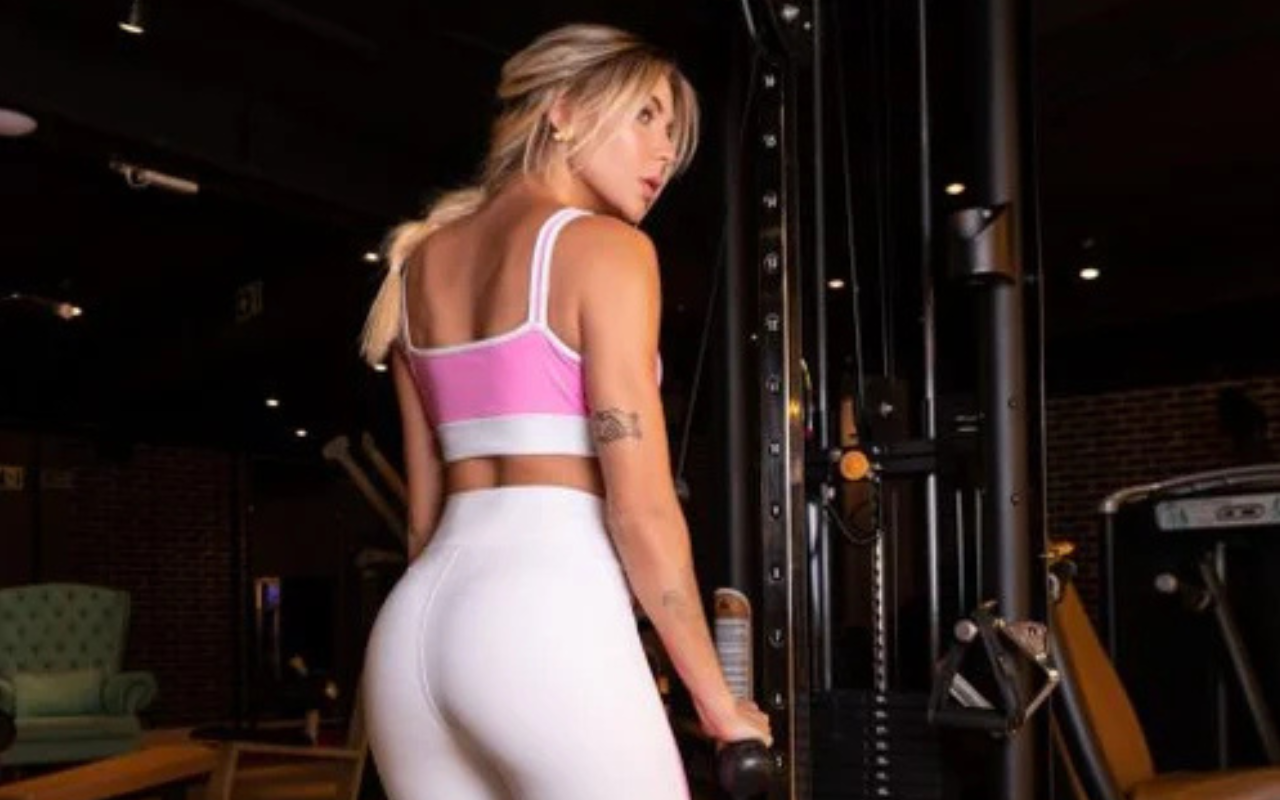
Best Biceps Exercises for Women
Let's be honest—strong arms feel good. Whether you want to lift groceries without a second thought, carry your kids with ease, or just feel confident in a sleeveless top, building bicep strength can help.
And no, lifting weights won't make your arms "too bulky." That's a common myth. In fact, adding a little strength training into your routine can tone your arms, boost your confidence, and make daily tasks easier.
So if you're wondering where to start, this guide is here to help. We're going to talk about the best biceps exercises for women—easy to follow, beginner-friendly, and totally doable at home or in the gym.
1. Bicep Curls
This is the most well-known biceps move, and for good reason. This dumbbell bicep exercise targets your biceps directly and is easy to learn.
How to do it:
-
Stand or sit with a dumbbell in each hand.
-
Keep your elbows close to your body and your palms facing forward.
-
Slowly curl the dumbbells up toward your shoulders, then lower them back down.
Try 2–3 sets of 10–12 reps. Start light with the weights and increase them over time as you get stronger.
Why it works:
Bicep curls isolate your biceps and are a great place to start if you're new to strength training.
2. Hammer Curls
Hammer curls are a variation of the standard curl. The only difference is how you hold the weights. your palms face inward instead of forward for this exercise.
How to do it:
-
Hold a dumbbell in each hand with your thumbs pointing up.
-
Keep your arms close to your body and curl the weights up.
-
Lower back down with control.
This move works the biceps and forearms at the same time.
Tip:
Keep your shoulders relaxed, and focus on squeezing the biceps at the top of the movement.
3. Concentration Curls
If you want to really feel the burn in your biceps, this one's for you. Concentration curls are based on isolating the muscle and moving with control.
How to do it:
-
Sit on a bench or chair.
-
Hold a dumbbell in one hand.
-
Lean forward slightly and rest your elbow against the inside of your thigh.
-
Curl the weight up slowly, then lower it with control.
Do 10–12 reps per arm, 2–3 sets. Switch sides after each set.
4. Resistance Band Curls
No dumbbells? No problem. Resistance bands are an excellent option, especially if you want to do a biceps workout at home without equipment.
How to do it:
-
Stand on the center of a resistance band with your feet shoulder-width apart.
-
Hold one end of the band in each hand with your palms facing up.
-
Curl the bands toward your shoulders, then lower back down.
The tension increases as you curl, making this a great strength-building option.
5. Zottman Curls
This curl combines a regular curl and a reverse curl into one move. It's great for hitting both your biceps and forearms.
How to do it:
-
Start with palms facing up as you curl the dumbbells up.
-
At the top, turn your palms face down.
-
Lower the weights with your palms facing down.
This gives your muscles a new challenge, which helps with both strength and tone.
6. Reverse Curls
Most biceps exercises have your palms facing up. With reverse curls, you flip it. This works the brachialis muscle under your biceps and tones the forearms.
How to do it:
-
Hold the weights with your palms facing your thighs.
-
Keep your elbows tucked in and curl the weights up.
-
Lower them slowly back to the start.
This one may feel harder than regular curls, so go for slightly lighter weights.
7. Chin-Ups
Chin-ups are a bodyweight move that works the biceps, back, and shoulders. If you can't do a full chin-up yet, don't worry—most people can't at first. You can use a resistance band or an assisted machine to help.
How to do it:
-
Grab a chin-up bar with your palms facing you.
-
Pull your chest toward the bar.
-
Lower yourself slowly back down.
Even doing just a few reps, or trying negatives (lowering down slowly), can help you build strength.
8. Cable Curls
If you go to the gym, cable machines are a great way to mix things up.
How to do it:
-
Attach a straight or rope handle to the low pulley.
-
Stand with a slight bend in your knees and hold the handle with both hands.
-
Curl the handle toward your chest, then lower back down.
The constant tension in the cable gives your muscles a different kind of challenge than free weights.
How Often Should You Train Your Biceps?
You don't need to work your biceps every day. In fact, it's best to give them a day or two to rest between workouts. Try training your arms 2–3 times per week, with at least one day off in between sessions.
You can add 2–4 biceps exercises into your arm day or upper body workout. Start with lighter weights to learn the movements, and slowly increase the weight over time as you get stronger.
What To Wear
Wearing the right gym clothes helps you move comfortably and focus on your form. Choose a supportive sports bra, a crop top, and form fitting leggings or gym shorts. Flat, stable shoes keep you grounded during curls or chin-ups. Optional lifting gloves can improve grip. When your outfit feels good, your workout usually does too.
Final Thoughts
Well trained biceps help you feel more capable in daily life. Whether you're carrying heavy bags, lifting things at home, or just want to feel more confident in a sleeveless top, bicep exercises can make a big difference.
You don’t need fancy equipment or hours of time. Just pick a few of these biceps exercises, stay consistent, and gradually challenge yourself as you go.
Ready to feel strong and look even stronger? At Fitnessee, we design gym wear that moves with you—whether you're lifting, stretching, or powering through your day. Discover gear that fits, flatters, and fuels your every move. Explore our matching workout sets, with a collection of bras and short or legging combinations to choose from. Shop Now!


